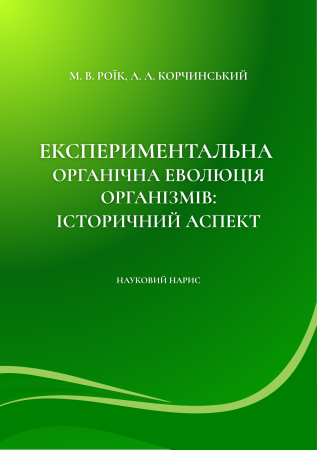Фахові видання ІБКіЦБ НААН:
Experimental organic evolution of organisms: Historical aspect
Keywords:
domestication, plants, breeding, selection, heterosis, mutational variability, cell engineering, haploidy, polyploidy, genetic engineering, DNA, transgenes, cellular biotechnologySynopsis
The phenomenon of domestication is examined as a key stage in the interaction between humans and plants and animals, shifting from natural to artificial selection, biological isolation, and reproductive control. The study explores the genetic, morphological, biochemical, and behavioural changes that accompany domestication, as well as the role of neuroendocrine systems. It describes the history and development of breeding practices from early cultivation to modern methods of genetic engineering, cellular biotechnology, and heterosis aimed at increasing productivity and resilience of crops and livestock breeds. The role of mutational variability and methods of mutation induction in the development of new plant varieties and animal breeds is presented. The contribution of folk varieties and modern breeding achievements, particularly in Ukraine, to the formation of global genetic diversity is highlighted.
This publication will be valuable for biologists, geneticists, agronomists, and all those interested in the origin and development of cultivated plants and domesticated animals within the framework of experimental organic evolution.

Downloads
Published
Categories
License

This work is licensed under a Creative Commons Attribution-NonCommercial-ShareAlike 4.0 International License.

